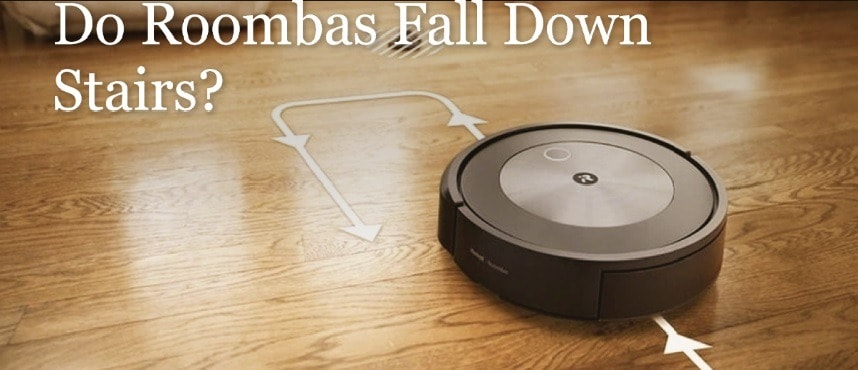Table of contents

Roombas, the popular robotic vacuum cleaners, have revolutionized the way we clean our homes. These autonomous devices offer convenience and efficiency, taking care of mundane tasks and giving us more time for other activities. However, one question that often arises is whether Roombas are capable of falling down stairs. In this article, we will explore the design and technology behind Roombas, debunking the myth and shedding light on how these intelligent machines navigate our homes safely.
Understanding Roomba’s Design
To understand whether Roombas can fall down stairs, it is essential to examine their design and features. Roombas are equipped with several sensors, including infrared sensors, cliff sensors, and bump sensors. These sensors work together to provide the Roomba with a comprehensive understanding of its surroundings and enable it to navigate effectively.
Infrared Sensors:
Roombas are equipped with infrared sensors that emit and detect infrared light. These sensors help the Roomba detect obstacles and furniture in its path, allowing it to navigate around them without colliding.
Cliff Sensors:
One of the most critical features of a Roomba is its cliff sensors. These sensors are designed to detect changes in surface elevation, such as stairs or ledges. When the Roomba approaches a drop-off, the cliff sensors alert the device, preventing it from falling down.
Bump Sensors:
Roombas are also equipped with bump sensors that detect physical contact with objects. When the Roomba bumps into furniture or walls, these sensors notify the device, causing it to change its direction and avoid obstacles.
Roombas are specifically designed to avoid falling down stairs or ledges. The cliff sensors play a crucial role in ensuring their safety. When a Roomba approaches a staircase, the cliff sensors detect the sudden change in surface elevation. As soon as the sensors recognize the presence of a drop-off, the Roomba alters its path to avoid going over the edge. It will either reverse its direction or choose an alternative route to continue cleaning in a safe area.
These cliff sensors are highly accurate and reliable, making it unlikely for a Roomba to fall down stairs. However, it is essential to note that no technology is infallible, and there could be rare instances where a Roomba may not detect a drop-off due to unusual circumstances or sensor malfunction. Nonetheless, the risk of a Roomba falling down stairs is significantly minimized by the intelligent design and robust safety features.
Enhanced Safety Measures
Roomba manufacturers have taken numerous steps to enhance the safety of their devices further. In recent years, advancements in technology have led to the introduction of additional safety features in newer Roomba models.
Virtual Wall Barriers:
Roombas now come with virtual wall barriers that use infrared signals to create an invisible boundary. These barriers can be set up near staircases or any other area where the Roomba needs to be prevented from entering. The virtual wall barrier acts as an additional layer of protection, ensuring that the Roomba does not approach or fall down stairs.
Modern Roomba models incorporate advanced mapping and navigation systems. These systems create a digital map of your home, allowing the Roomba to plan and optimize its cleaning path efficiently. By knowing the layout of the house, including the location of stairs, the Roomba can navigate around them safely.
Safe Cleaning Modes:
Many Roombas offer specific cleaning modes designed for multi-story homes or areas with stairs. In these modes, the Roomba adjusts its cleaning behavior to avoid any potential risks near staircases. For example, it may prioritize cleaning other rooms or avoid going near the edges of stairs altogether.
Conclusion
Contrary to popular belief, Roombas are intelligently designed to prevent falls down stairs. The combination of infrared sensors, cliff sensors, and bump sensors allows these robotic vacuum cleaners to navigate safely in our homes. The cliff sensors, in particular, play a crucial role in detecting changes in surface elevation, ensuring that the Roomba avoids any drop-offs.
While it is always essential to exercise caution when using any automated device, the risk of a Roomba falling down stairs is significantly reduced due to the extensive safety features and advancements in technology. Manufacturers continue to innovate and enhance the safety measures of Roombas, further solidifying their ability to clean efficiently without the worry of accidental falls.
So, the next time you deploy your trusty Roomba for cleaning, rest assured that it is engineered to keep itself and your stairs safe, allowing you to enjoy a clean home without any unnecessary concerns.
